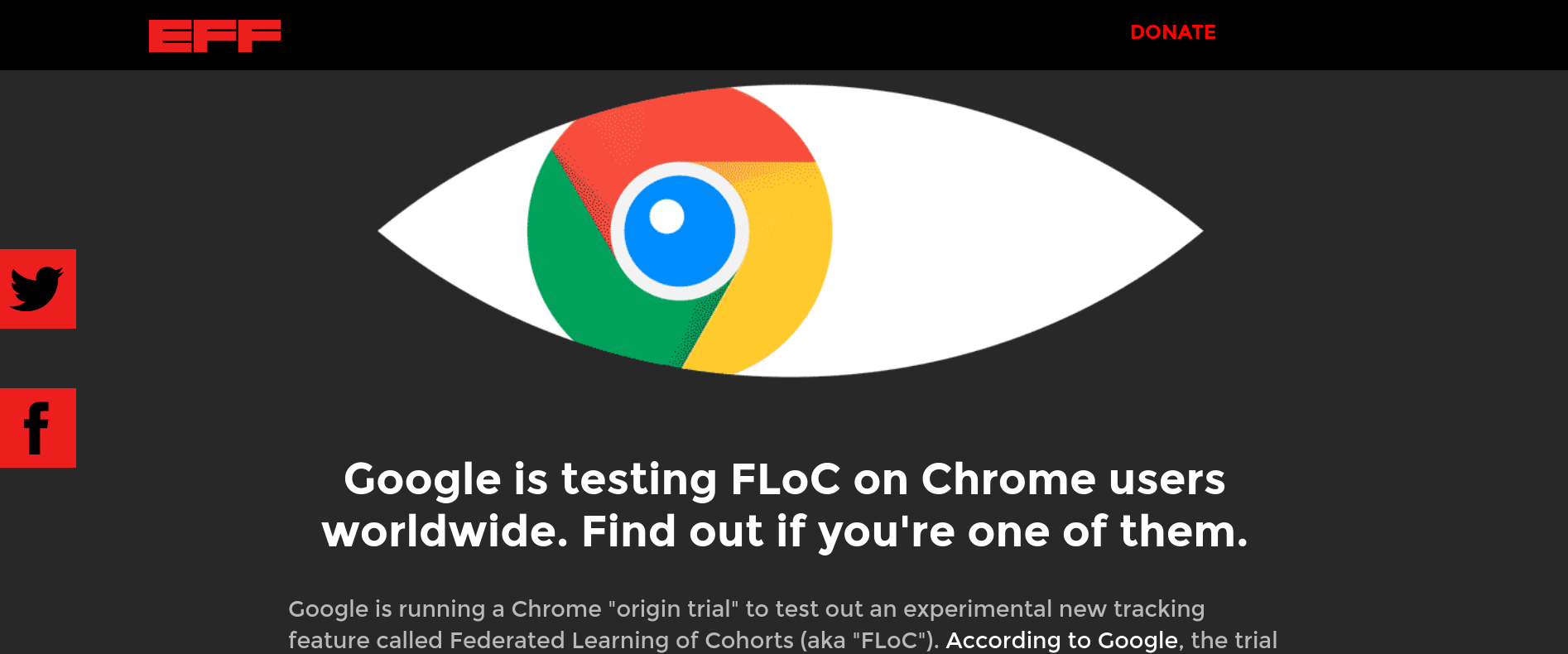It is now known that Google monitors everything on the Internet.
The 2020 the Google announced the beginning of the end of cookies of third parties watching you as you do click in your Chrome browser or whatever you're using.
But the company has started releasing the cookie-cutter, a monitoring mechanism called "Federated Learning of Cohorts" or simply FLoC.

Cookies remember information with your login details or the content you saw in an online store. Advertisers use this information to better understand your online behavior even if you are offline and then serve you specific, targeted ads that follow you on the Internet.
Google has said it wants to make Internet browsing less intrusive, but on the other hand it wants to keep making money from the Internet.
This led to a shift from cookies to the FLoC system. This technology groups users with similar interests based on browsing history. An identifier (ID) assigned to your group follows the Internet. To advertisers, Google offers “advertising based on interest".
Google considers technology an "alternative to privacy" instead of cookies, as your browser history is not transmitted directly to advertisers, only your ID. Thousands of users could be part of such a group.
A whitepaper Google for FLoCs summarizes them benefits of privacy (according to Google), letting users “hide in the crowd”. Based on your browsing history, you could be in a group made up of dog owners who visited multiple websites rather than being singled out as individual dog owners who went to, say, a pet shop.
By watching Chrome FLoC, you will join a group that likes or has dogs instead of joining a group of other people who have visited the same sites but who have or like cats. Each user can participate in many groups based on their interests. And because many Chrome users are logged in to their Google Accounts, their IDs follow (and are further configured).
The online privacy advocacy group, Electronic Frontier Foundation, does not support this new form of online tracking that replicates your online history to more accurately group and aggregate more information into an ID (this is known as fingerprinting).
The EFF is also concerned that testing for the new monitoring method has begun without the user's consent or knowledge and without any clear exception.

In response to this new type of monitoring, the EFF created a website to check if the Chrome you are using generates an ID to join you in a group.
At present (according to Google) the tests are performed on a small group of users. However, the EFF reminds you to keep checking, as each week you could be added to the company teams as the tests expand.





